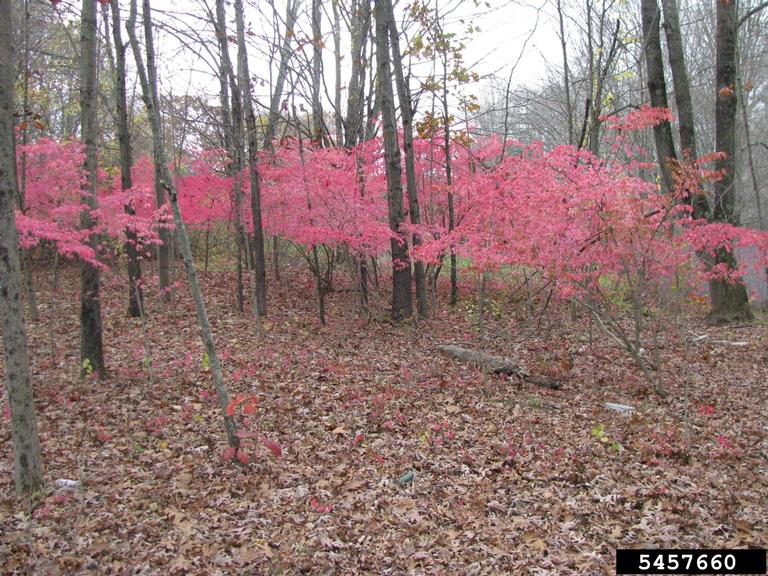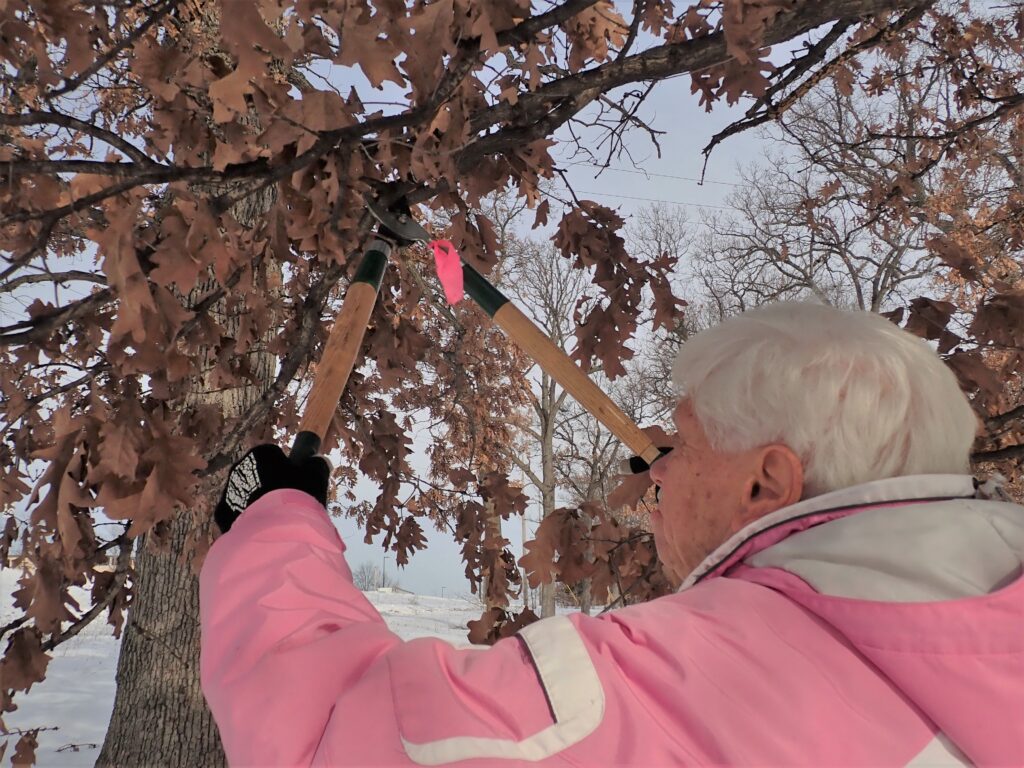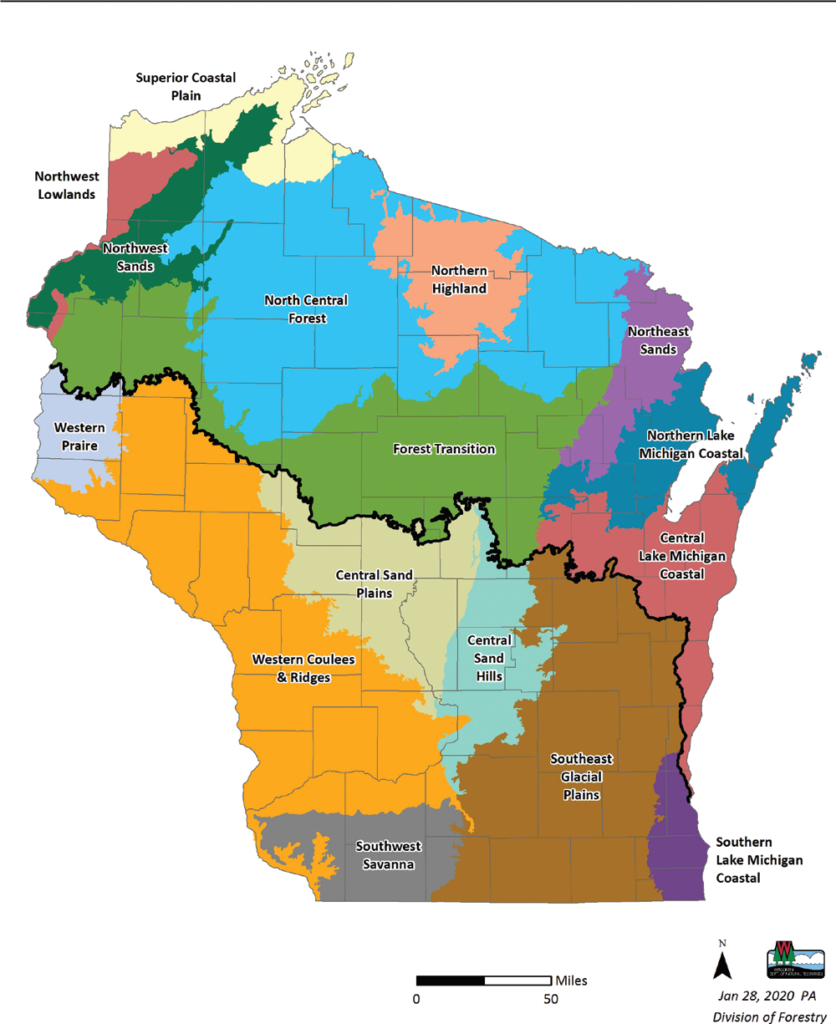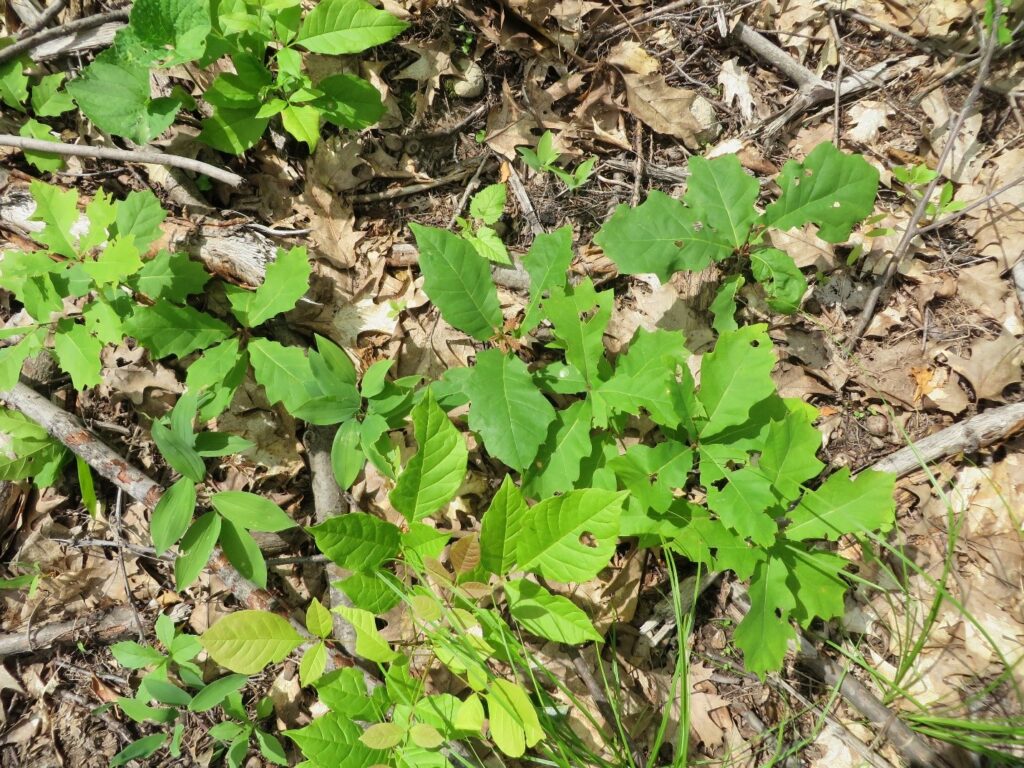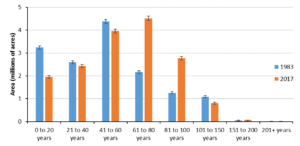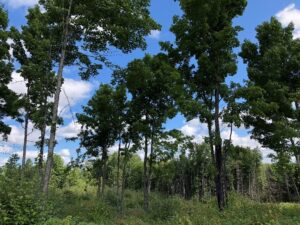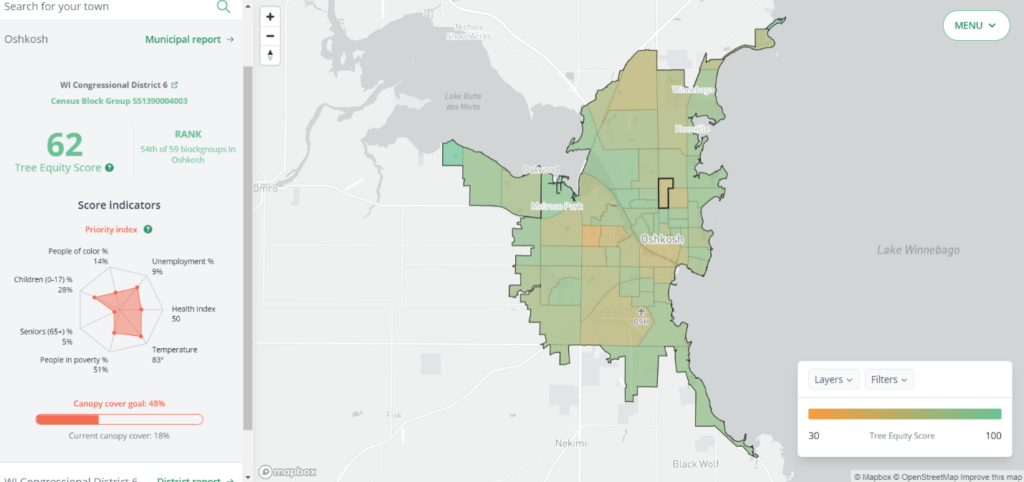Article By: Jaqi Christopher, Invasive plant specialist & Mary Bartkowiak, Invasive plant coordinator
Just as the leaves begin to shift from summer green to the fall shades of gold, orange, red and bronze, the fruits of Oriental bittersweet explode on the scene with their very own show-stopping colors of bright gold and red.
The sight of these vines full of colorful berries may tempt the casual observer to take these berry-filled branches home to use as fall decorations or to plant in their own garden. This, however, would be a mistake, as this striking plant is a serious threat to native ecosystems. Oriental bittersweet is a restricted species under Wisconsin’s Invasive Species Rule NR40. This makes it illegal to transport, transfer or introduce Oriental bittersweet statewide.
Oriental bittersweet is an aggressive-growing woody vine that invades forests, woodlands, fields and hedgerows. The vines twine up trees, smother the crown and girdle trunks with their thick woody stems. In fact, the sheer weight of the vine can cause tree crowns to break and collapse and whole trees to uproot. Additionally, large mats of bittersweet can shade out native plants.
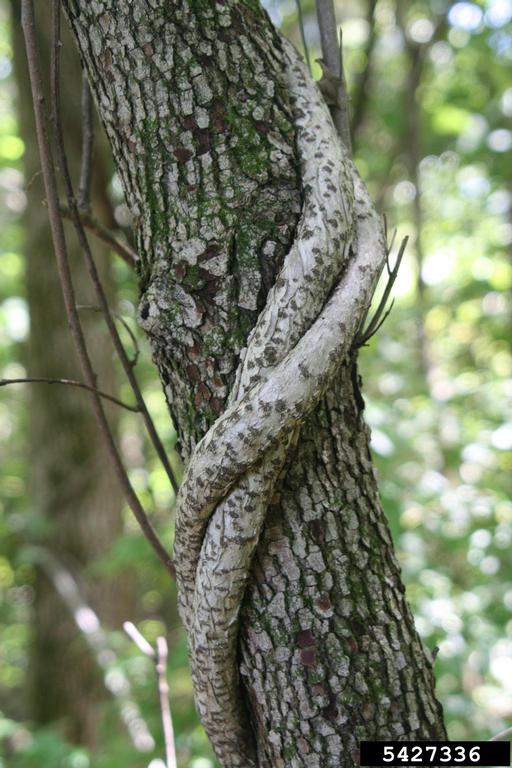
Oriental bittersweet vine girdles tree trunks. Photo Credit: Minnesota Department of Agriculture
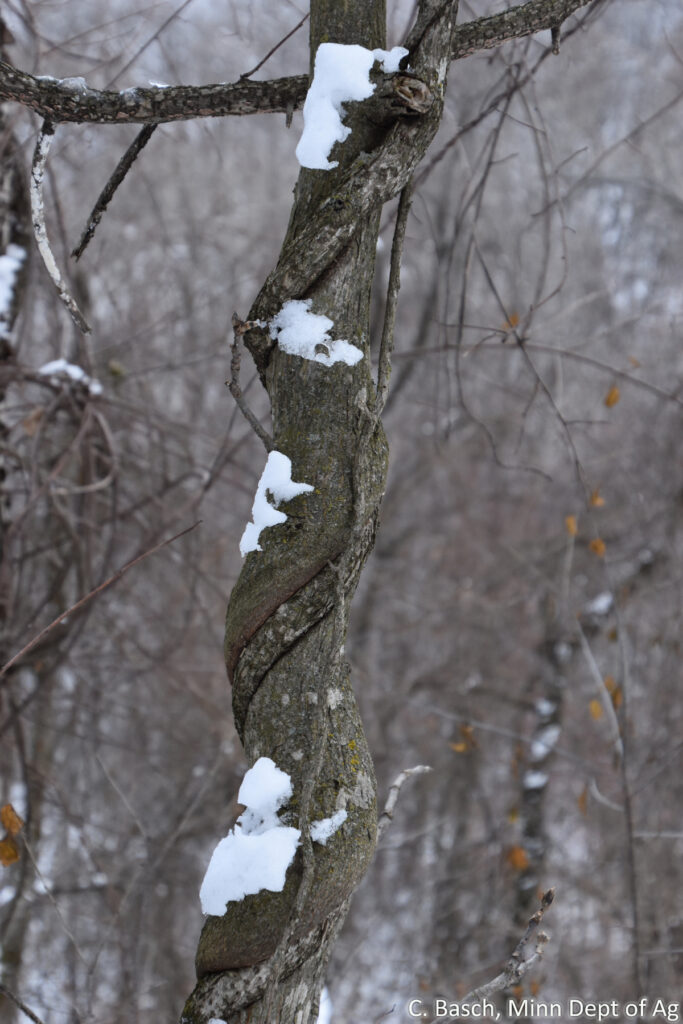
Oriental bittersweet vine girdles tree trunks. Photo Credit: University of Illinois’ Chris Evans
Continue reading “Oriental Bittersweet: A Bitter Beauty!” →

